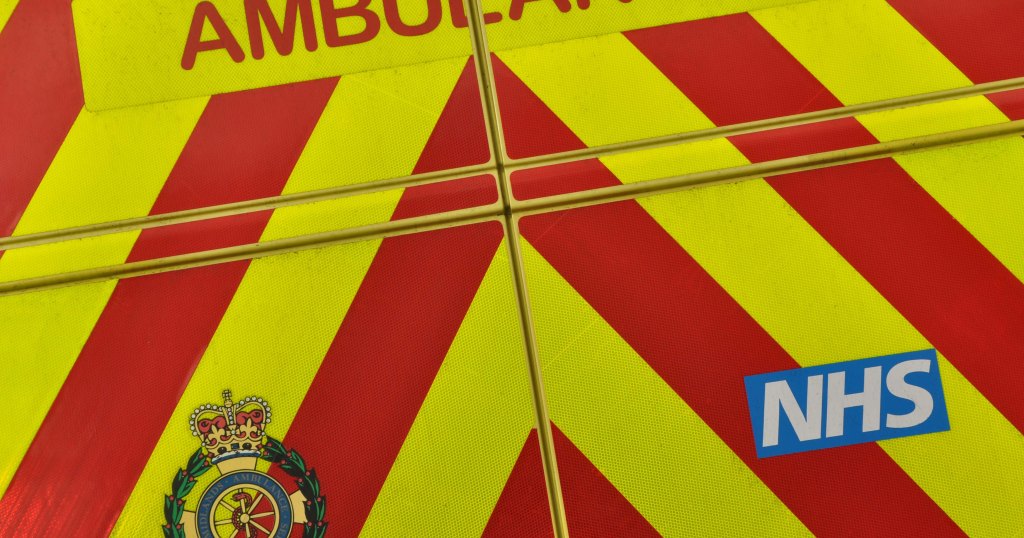West Midlands Ambulance Service (WMAS) is to roll out body cameras for all frontline emergency staff after over 1,100 were assaulted last year.
In total, 1,162 physical attacks were recorded on WMAS staff last year (2020-21), with a further 2,181 cases of verbal abuse.
The shocking figures are made even worse by the rate of increase in attacks over the last five years. Physical attacks have risen by over 60% in that period while verbal assaults have more than doubled.
Funding of almost a million pounds from NHS England has allowed the Trust to purchase 1,288 cameras which will be sufficient for each frontline ambulance crew member to wear one.
WMAS ran a pilot using 30 cameras in the autumn of 2019 which fed into the decision by NHS England to roll the cameras out across the country. In over 36,000 hours of use, there were only three activations by staff, and only one of those related to violence.
Trust Chief Executive, Anthony Marsh, said: “The safety of my staff is of paramount importance to me. If they are injured, they are not available to respond to patients.
“The cameras will allow staff to record incidents where they feel at risk with any recordings being able to be given in evidence should an actual assault occur.
“Hopefully, they will never have to be used, but if they are, the evidence will hopefully increase the rate of successful prosecutions and subsequent sentencing. All too often my staff feel let down by the judicial system and this important step will help to redress that situation.”
All ambulance staff will be able to wear the cameras while they are on shift. They do not record all of the time and are instead switched on by the member of staff if patients or the public became aggressive or abusive. Once the device is recording, it will display red lights to show that it is recording.
In 2017, Paramedic Neil Vann from Coventry was knocked unconscious by a patient who he was trying to help. The man was subsequently jailed for six months, but Neil says having the camaras might have made the situation very different: “The cameras are there to protect us in case things turn nasty. I hope I never have to switch it on, but given what happened to me, it is nice to know that I have the chance to record what happened so that a court can see.
“The vast majority of people probably won’t know they are even there – they won’t be switched on in 99.9% of occasions, but they are there just in case. I feel sure that had I had a camera when I was assaulted, my assailant might have thought twice about attacking me.”
Bee Knight who is based at Shrewsbury Hub, added: “When I was attacked in May last year, I suffered a wrist injury that left me in plaster for 10 days and a brace for five weeks. That was seven weeks that I wasn’t able to help patients during the COVID-19 pandemic when we needed every member of staff available.
“Having been through that, having a camera that I could switch on would make me feel much safer. It would allow a court to see the actions of the offender and judge for themselves what happened.”
Senior Operations Manager, Graeme Jones, ran the Trust’s pilot project in 2019. He said: “The staff involved in the initial trial reported that the cameras made them feel safer and were useful in de-escalating situations where a patient or member of the public started to become aggressive; just saying that they were going to turn on the camera often calmed situations down very rapidly.
“The fact that after hundreds of shifts we hadn’t caught any footage is probably the best result we could have hoped for; clearly it is much better for people not to be hurt than for us to have to use footage as part of a prosecution.”
Prerana Isaar, Chief People Officer for the NHS, said: “Every member of our dedicated and hardworking NHS staff has the fundamental right to be safe at work and it is our priority to eliminate violence and abuse, which we will not tolerate.
“As well as reducing the number of incidents towards our staff, these cameras are a vital step towards ensuring our people feel safe too.”
Statistics showing the rise in violence against staff:
| Physical Assaults | Verbal Assaults | |
| 2020-21 | 1,162 | 2,181 |
| 2019-20 | 944 | 1,536 |
| 2018-19 | 864 | 1,268 |
| 2017-18 | 820 | 1,070 |
| 2016-17 | 724 | 1,050 |



